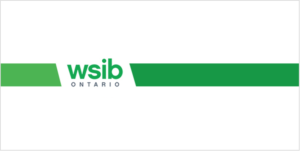In British Columbia, family physicians provide the majority of mental health care services. With the challenges and difficulties brought on by the COVID-19 pandemic, physicians are becoming overwhelmed with increasing mental health visits and understanding how to bill them. This post breaks down the most common MSP billing codes to help physicians bill for mental health care visits.
We have broken down the post into four sections:
- MSP Billing Codes for Counselling
- Mental Health Planning Fee
- Mental Health Management Fees
- Eligible Diagnoses and ICD-9 Codes
1. MSP Billing Codes for Counselling
Physicians can deliver counselling via Telehealth or in-person visits. Fee codes are billed for any general counselling provided by the physicians, including conversations relating to a patient’s mental health.
Please note: As a general practitioner, you will be mainly using the counselling codes for billing your mental health visits. If you are a specialist or are receiving referrals from other doctors, you should bill the Telehealth consultation fee codes.
Temporary Telehealth Counselling Billing Codes
On June 1, 2020, the Ministry introduced six temporary Telehealth fee codes that can be used for billing counselling services. These visits can be done via phone or videoconferencing. The Provincial Health Officer will determine the cancellation date.
| Fee Code | Description | Value |
| T13238 | Telehealth FP Individual counselling for a prolonged visit for counselling (minimum time per visit – 20 minutes) (age 0-1) | $62.05 |
| T13438 | Telehealth FP Individual counselling for a prolonged visit for counselling (minimum time per visit – 20 minutes) (age 2-49) | $56.41 |
| T13538 | Telehealth FP Individual counselling for a prolonged visit for counselling (minimum time per visit – 20 minutes) (age 50-59) | $62.05 |
| T13638 | Telehealth FP Individual counselling for a prolonged visit for counselling (minimum time per visit – 20 minutes) (age 60-69) | $64.86 |
| T13738 | Telehealth FP Individual counselling for a prolonged visit for counselling (minimum time per visit – 20 minutes) (age 70-79) | $73.32 |
| T13838 | Telehealth FP Individual counselling for a prolonged visit for counselling (minimum time per visit – 20 minutes) (age 80+) | $84.60 |
Notes:
- MSP will pay for up to four (4) individual counselling visits (any combination of age-appropriate in-office, out of office, and Telehealth) per patient per year.
- Start and end times must be entered into both the billing claims and the patient’s chart.
- Documentation of the effect(s) of the condition on the patient and what advice or service was provided is required.
If you would like to learn more about the MSP Telehealth codes, read our full blog here.
In-Office Counselling Billing Codes
Six codes can be billed for in-office counselling. The fee codes are time-based, with a minimum time required of 20 minutes.
| Fee Code | Description | Value |
| 12120 | Individual counselling – in office (age 0-1) | $62.05 |
| 00120 | Individual counselling – in office (age 2-49) | $56.41 |
| 15320 | Individual counselling – in office (age 50-59) | $62.05 |
| 16120 | Individual counselling – in office (age 60-69) | $64.86 |
| 17120 | Individual counselling – in office (age 70-79) | $73.32 |
| 18120 | Individual counselling – in office (age 80+) | $84.60 |
Notes:
- MSP will pay for up to four (4) such visits per patient per year.
- Items 12120, 00120, 15320, 16120, 17120, and 18120 are subject to the daily volume payment rules.
2. Mental Health Planning Fee
The mental health planning fee is the completion and documentation of a care plan for patients with a confirmed eligible mental health diagnosis warranting the development of a care plan. This can be billed by the Most Responsible Physician (MRP) once the PG14070/PG14071 has been paid in the same calendar year. The fee code is time-based with a minimum required time of 30 minutes for total planning.
Patient Eligibility:
- Eligible patients must be living at home or in assisted living.
- Patients in Acute and Long-Term Care Facilities are not eligible.
| Fee Codes | Description | Value |
| 14043 | Mental Health Planning Fee | $100 |
Notes:
- Payable once per calendar year per patient. They are not intended as a routine annual fee.
- Chart documentation must include
- The care plan;
- Total planning time (minimum 30 minutes); and
- Physician face-to-face planning time (minimum 16 minutes).
3. Mental Health Management Fees
Five mental health management fee codes are payable for prolonged counselling with patients on whom a Mental Health Planning fee (14043) has been successfully billed. The fee code is time-based, with a minimum time required of 20 minutes.
| Fee Codes | Description | Value |
| 14044 | Mental Health Management Fee (age 2-49) | $56.41 |
| 14045 | Mental Health Management Fee (age 50-59) | $62.05 |
| 14046 | Mental Health Management Fee (age 60-69) | $64.86 |
| 14047 | Mental Health Management Fee (age 70-79) | $73.32 |
| 14048 | Mental Health Management Fee (age 80+) | $84.60 |
Notes:
- Payable a maximum of 4 times per calendar year per patient.
- Counselling may be provided face-to-face or videoconferencing.
- Not payable unless the four age-appropriate 00120 or telehealth counselling (13018, 13038) fees have already been paid in the same calendar year in any combination.
4. Eligible Diagnoses and ICD-9 Codes
In addition to submitting the claims for the mental health planning fee and the management fees, physicians must also document the diagnostic code (ICD-9 code) related to the patient.
|
Category |
Diagnosis |
ICD-9 |
|
Anxiety Disorders |
Anxiety Disorders |
300, 308, 50B |
|
Bipolar and Related Disorders |
Bipolar |
296 |
|
Cyclothymia |
301.13 |
|
|
Depressive Disorders |
Depressive Disorders |
311 |
|
Dissociative Disorders |
Dissociative Disorders |
300 |
|
Eating Disorders |
Eating Disorders |
307, 307.1 |
|
Gender Dysphoria |
Gender Dysphoria |
302 |
|
Impulse Control Disorders |
Impulse Control Disorders |
312 |
|
Neurocognitive Disorders |
Delirium |
293 |
|
Dementia |
290, 331, 331.0, 331.2 |
|
|
Neurodevelopmental Disorders |
Attention Deficit Disorder |
314 |
|
Autism Spectrum Disorder |
299.0 |
|
|
Pervasive Development Disorder |
299.0 |
|
|
Obsessive-Compulsive & Related Disorders |
Obsessive-Compulsive Disorder |
300 |
|
Body Dysmorphic Disorder |
300.7 |
|
|
Schizophrenia and other Psychotic Disorders |
Schizophrenia and other Psychotic Disorders |
293, 295, 297, 298 |
|
Sexual Dysfunction |
Sexual Dysfunction |
302 |
|
Sleep Disorders |
Sleep Wake Disorders: Insomnia/Hypersomnolence, Narcolepsy |
307.4, 347 |
|
Parasomnias |
307.4 |
|
|
Breathing-Related Sleep Disorders |
780.5 |
|
|
Somatic Symptom & Related Disorders |
Factitious Disorder |
300, 312 |
|
Pain Disorder with Affective Symptoms |
338 |
|
|
Somatic Symptom Disorder |
300.8 |
|
|
Conversion Disorder |
300.1 |
|
|
Substance Use Disorders |
Substance Use Disorder: Alcohol |
303 |
|
Substance Use Disorders: Drugs |
304 |
|
|
Trauma and stressor-related Disorders |
Adjustment Disorders |
309 |
|
Post-Traumatic Stress Disorder |
309 |
Notes:
- When entering the diagnostic codes into the claim record, be sure to left justify the code without the decimal point but including leading zeros and blank fill the remaining spaces. Decimal points and other special characters are not recognized by the Telepan system and cause claims to be rejected.
We have created a quick reference guide for the mental health billing codes. You can download it here.
Need further assistance with billing for mental health visits? We can help!


